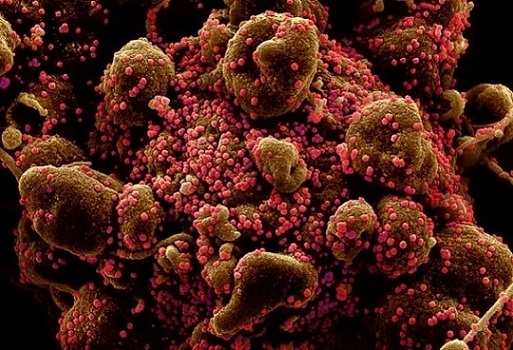Nikhil Prasad Fact checked by:Thailand Medical News Team Aug 29, 2025 5 months, 3 weeks, 4 days, 20 hours ago
Medical News: A new study by researchers from the Viral Immunology Group, School of Biochemistry and Immunology, Trinity Biomedical Sciences Institute, Trinity College Dublin, Ireland, has highlighted the crucial role of SOCS proteins in shaping how the immune system responds to COVID-19. SOCS, or suppressor of cytokine signaling proteins, are molecules inside our cells that normally help keep the immune response in balance. They prevent excessive inflammation that can damage tissues, but at the same time, many viruses, including SARS-CoV-2, have learned to manipulate these proteins for their own survival. According to this
Medical News report, the way SOCS proteins function during infection may determine whether the immune system clears the virus or falls into dangerous overreaction.
 SOCS Proteins Hold the Key to COVID-19 Immune Control
How viruses exploit SOCS proteins
SOCS Proteins Hold the Key to COVID-19 Immune Control
How viruses exploit SOCS proteins
SOCS proteins act as regulators of the immune system by interfering with key communication pathways inside immune cells, such as the JAK/STAT system. Normally, this control prevents the body from going into damaging overdrive. But research has shown that several viruses—including hepatitis, influenza, and now SARS-CoV-2—can hijack SOCS proteins. By increasing or decreasing SOCS levels, viruses block interferons, which are natural antiviral signals, and dampen the body’s early defenses. In the case of COVID-19, SOCS1 and SOCS3 appear to play particularly strong roles in weakening protective responses, especially in the lungs and blood, giving the virus more room to replicate.
Evidence from COVID-19 patients and cell studies
The study looked at both patient samples and laboratory experiments. Findings showed that in lung and blood cells from COVID-19 patients, SOCS1 and SOCS3 were often elevated, while other SOCS family members were reduced. This imbalance seemed to vary depending on the tissue, suggesting that SARS-CoV-2 adapts its tactics differently in the lungs, heart, intestine, and brain. Researchers also found that the virus may use its own small genetic fragments called microRNAs to directly control SOCS genes. The complexity of this regulation explains why some people develop only mild symptoms, while others progress to severe disease.
Links to severe COVID-19 and other conditions
Importantly, the paper highlighted that people with underlying conditions like obesity, type 2 diabetes, and metabolic syndrome are more vulnerable because they already have abnormal SOCS protein activity. For example, excess body fat raises levels of certain hormones and cytokines, which push SOCS1 and SOCS3 higher. This weakens antiviral defenses and increases the risk of runaway inflammation. Genetic differences and even chemical changes in DNA linked to SOCS genes were also tied to more severe COVID-19 cases.
Possible treatment opportunities
One promising direction is the development of drugs that can block SOCS1 and SOCS3 at the right stage of infection. Laboratory studies using small peptide inhibitors showed reduced SARS-CoV-2 replicatio
n in infected cells. However, the researchers caution that blocking SOCS too late could worsen inflammation and contribute to the deadly “cytokine storm” seen in critical patients. This means timing will be crucial if SOCS-targeting therapies are to be used in hospitals.
Final thoughts
The study underscores that SOCS proteins are double-edged swords—essential for preventing harmful immune overdrive, yet easily hijacked by viruses to weaken the body’s defense. Their activity changes depending on the tissue, the stage of infection, and even the patient’s underlying health. This makes SOCS both a challenge and an opportunity in the fight against COVID-19. In the future, SOCS-targeted treatments, used together with existing antivirals and vaccines, may provide a way to both reduce viral spread and prevent severe inflammatory damage. By understanding these hidden immune regulators, scientists may open the door to better therapies not only for COVID-19 but also for other viral diseases.
The study findings were published in the peer reviewed European Journal of Immunology
https://onlinelibrary.wiley.com/doi/10.1002/eji.202451645
For the latest COVID-19 News, keep on logging to Thailand
Medical News.
Read Also:
https://www.thailandmedical.news/news/hidden-viral-enabler-cd9-could-be-the-missing-key-in-covid-19-spread
https://www.thailandmedical.news/news/it-was-wrong-to-have-used-the-spike-proteins-in-the-covid-19-vaccines-as-they-can-elicit-many-kinds-of-pathogenic-autoantibodies
https://www.thailandmedical.news/news/anti-hiv-drug-shows-strong-potential-against-covid-and-long-covid
